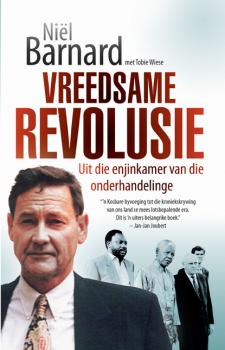ТОП просматриваемых книг сайта:
Niël Barnard
Список книг автора Niël BarnardАннотация
In the murky world of espionage few rules apply. Everything is permitted in the name of state security – even talking to the country's Enemy No. 1. This is exactly what Niël Barnard, then head of the National Intelligence Service (NIS), did in the late 1980s. On instruction of PW Botha, he started top-secret talks with Nelson Mandela in prison. Not even Cabinet was informed. In Secret Revolution Barnard reveals, for the first time, the details of these meetings – the precursor to Mandela's release and the first democratic elections. Barnard's disclosures offer fascinating insights into Mandela the man, his convictions and strategic reasoning. The book also sheds light on the daily lives of spies during NIS's heyday in the 1980s and contains several revelations: From the secret communication channel NIS established with the KGB and the British operatives caught spying on South Africa's nuclear capability to ministers' sexual escapades.
Аннотация
In die duister wêreld van spioene geld die gewone reëls nie. Alles is geoorloof in die naam van landsveiligheid – selfs om met die staat se Vyand No. 1 te praat. Dit is presies wat Niël Barnard in die laat 1980's as hoof van die Nasionale Intelligensiediens (NI) gedoen het. In opdrag van PW Botha het hy hoogs geheime gesprekke met Nelson Mandela begin voer. Nie eens die kabinet het geweet nie. In Geheime Revolusie lig Barnard vir die eerste keer die sluier oor dié tronkgesprekke – wat uiteindelik tot Mandela se vrylating en die eerste demokratiese verkiesing sou lei. Dit bied 'n fassinerende blik op Mandela die mens en op sy politieke oortuigings. Die boek werp ook lig op die alledaagse lewe van spioene en die suksesse van NI in die 1980's. Barnard maak etlike onthullings: Van die gesprekskanaal wat NI met die Russiese KGB geskep het en die Britse spioene wat op ons kernwapenvermoë gespioeneer het (en vasgetrek is) tot ministers se eskapades in die buiteland.
Аннотация
In die vroeë 1990's is Suid-Afrika op 'n mespunt. Nelson Mandela is uiteindelik vry, maar 'n vreedsame politieke oorgang lyk byna onmoontlik. Links én regs staan gereed om die wapen op te neem. Te midde van dié dreigende geweld, met die land se toekoms op die spel, kom die grootliks onvoorbereide en koerslose NP-regering teen die ANC te staan by Kodesa. As hoof van die Nasionale Intelligensiediens (NI) is Niël Barnard sentraal tot dié onstuimige proses, wat telkens byna ontspoor. Barnard was daar die dag toe die altyd-kalm Nelson Mandela sy humeur verloor en teen FW de Klerk begin uitvaar. Hy het eerstehands beleef hoe die morele hoëgrond deur die NP se vingers glip en die ANC die oorhand kry. Dié boek verskaf Niël Barnard se indringende blik op dit wat agter die skerms afgespeel het by Kodesa. Hy onthul ook hoe vertrouensbande tussen die ANC en NI gesmee is tydens geheime ontmoetings in Europese hotelkamers, en skryf oor sy wedervaringe in Moskou saam met die Russiese KGB.
Аннотация
It is the early 1990s and South Africa is on a knife-edge. Nelson Mandela is free at last, but a peaceful political transition looks virtually impossible. Both sides of the political divide, the left and the right, are poised to take up arms. In the midst of this threat of violence, with the future of the country at stake, the largely unprepared and rudderless NP government faced the ANC at the negotiation table at Codesa. As head of National Intelligence (NI), Niël Barnard was central to this turbulent process, which was almost derailed several times. Barnard was there the day the ever-calm Nelson Mandela lost his temper and tore into FW de Klerk with a verbal attack. He experienced first-hand how the moral high ground slipped through the NP's fingers and the ANC gained the ascendancy. In this book, Niël Barnard provides a penetrating look at what happened behind the scenes at Codesa. He also reveals intriguing details of top-secret meetings between the ANC and the NI in hotel rooms in Europe, and writes about his surreal encounters with the Russian KGB in Moscow.




